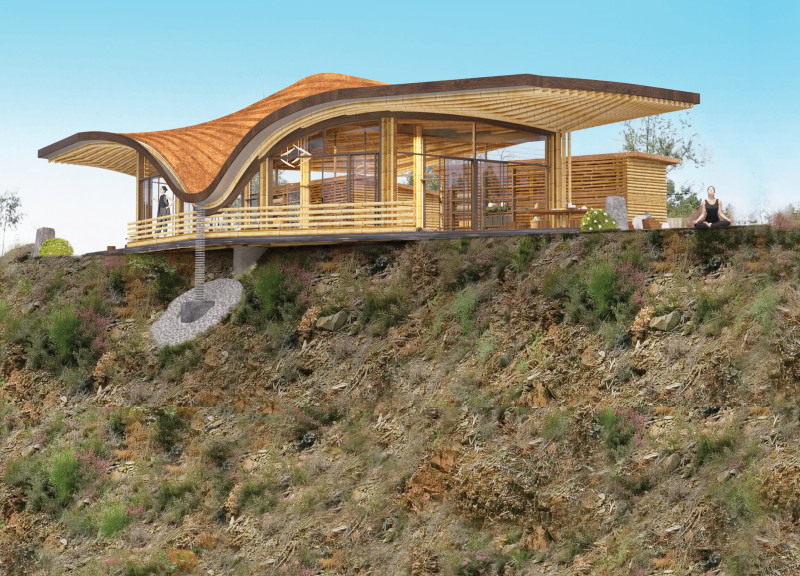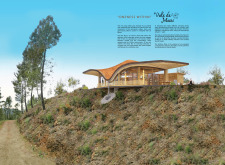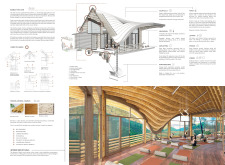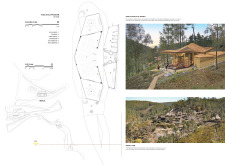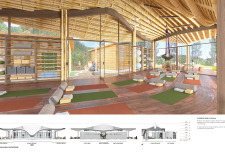5 key facts about this project
The Bamboo Shala is a thoughtfully designed architectural project located in Vale de Moses, Portugal. This structure serves primarily as a yoga studio and meditation space, aiming to foster a deep sense of tranquility and connection with nature. The design emphasizes sustainability, integrating seamlessly into the natural landscape while offering functional spaces tailored for wellness practices.
The project features an open floor plan that accommodates various yoga classes and meditation sessions, with panoramic views of the surrounding mountains provided through expansive glass panels. The incorporation of bamboo as the main structural material not only contributes to the building's ecological goals but also enhances its aesthetic appeal. Bamboo, combined with a thatched roof and concrete flooring, creates a harmonious environment that encourages relaxation and mindfulness.
Sustainability Practices and Unique Design Approaches
A key aspect of the Bamboo Shala is its commitment to environmental sustainability. The choice of materials, particularly bamboo, reflects a design philosophy centered on ecological consciousness. This fast-growing resource is adept at withstanding the local climate while also exhibiting strong acoustic properties that favor peaceful activities like yoga and meditation.
In addition to bamboo, the use of a thatched roof provides an effective natural insulator, contributing to energy efficiency. Concrete flooring adds stability and durability, ensuring the structure can withstand varied weather conditions found in the mountainous region.
The open deck areas extend the functional space beyond the interior, encouraging outdoor activities and fostering a connection between the users and the landscape. This layout promotes social interaction among participants and utilizes the surrounding environment as an extension of the practice space.
Spatial Organization and Functional Elements
The interior design of the Bamboo Shala prioritizes user experience. The main yoga space, characterized by its flexibility, can accommodate diverse activities while benefiting from abundant natural light. This is strategically important for creating a calming atmosphere essential for meditation and yoga practices.
The building also includes essential amenities such as a kitchenette and bathrooms, positioned to support the smooth flow of movement within the structure without disrupting the serene environment. Surrounding Zen gardens enhance the meditative nature of the space, providing areas for quiet reflection and connection with nature.
The integration of a rainwater harvesting system illustrates the project’s ecological intentions, utilizing collected water for maintenance and irrigation of the surrounding gardens.
For those interested in exploring this architectural project further, detailed architectural plans, sections, and designs can provide valuable insights into the innovative ideas that guided this undertaking. Understanding these elements will give a comprehensive view of the architecture and design strategies employed in this unique project.


